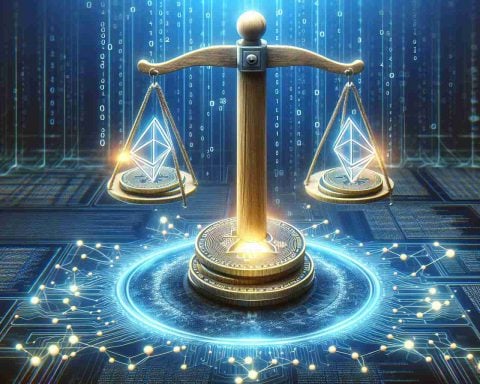In a significant move, the Russian Federation Council has greenlit a law addressing the taxation of income and expenses from digital currency mining, as well as its transactions. Digital currencies are now officially recognized as property under the Tax Code.
No VAT Liability: The law stipulates that operations involving digital currencies will not incur VAT. Instead, earnings from such activities will integrate into a unified tax base alongside securities transactions. Starting in 2025, the individual income tax rate might hit 13%, escalating to 15% when one’s annual income surpasses 2.4 million rubles.
The New Tax Base Paradigm: A fresh article added to the Tax Code outlines how the tax base for digital currency, mined or otherwise, is calculated. The tax base aligns with the market quote on the income’s acquisition date—specifically the closing price fixed by foreign trading organizers, including exchanges, based on daily transactions.
Furthermore, a select group of foreign exchanges must be considered by miners when calculating profit taxes, which will see a rate of 25% post-2025. With trading volumes exceeding 100 billion rubles daily, a trading organizer’s relevance is established. Details about currency quotes have to be continuously available for three years on an official exchange website.
Additionally, operators of mining infrastructure are tasked with quarterly data submission regarding the cryptocurrency mining activities to tax authorities, facing penalties for non-compliance. This aspect of the law activates on January 1, 2025.
These reforms aim to introduce regulatory clarity conducive to a more structured digital currency ecosystem in Russia, embracing blockchain innovations in external trade.
How Russia’s New Digital Currency Tax Law Shakes Up the Global Crypto Landscape
Russia’s latest legislation on digital currency marks a notable shift in the global cryptocurrency landscape. As the country acknowledges digital assets as taxable property, they are setting a precedent that could influence international regulatory practices. However, several intriguing aspects were not covered in the initial announcement that could significantly impact individuals and wider economic ecosystems.
The Impact on Russia’s Tech and Finance Sectors
With the legal recognition of digital currencies under the Russian Tax Code, the tech and finance sectors might see a substantial transformation. Russia could become a more attractive destination for blockchain and cryptocurrency ventures, drawing international investments and encouraging local startups to flourish. This could bolster the nation’s technological expertise and workforce skillset, potentially leading to a thriving job market in related fields.
On a different note, the looming tax rates and specific compliance requirements might deter small-scale and individual miners due to increased operational costs and administrative burdens. This might concentrate mining activities among larger corporations that can efficiently manage compliance and absorb financial impacts.
What Does This Mean for Everyday Russians?
For Russian citizens engaged in cryptocurrency transactions, the introduction of a structured tax system offers both clarity and complexity. On one hand, individuals gain legal acknowledgment for their digital assets, which can facilitate smoother transactions and enhance transparency. On the other, they face new tax obligations that require careful navigation, particularly given the tax bracket implications tied to annual income thresholds.
Economic Implications: A Double-Edged Sword?
For Russia, embracing cryptocurrency on this scale could have broader economic benefits by integrating blockchain technologies into external trade processes. This could result in more efficient cross-border transactions and improved economic relations with countries that are also adopting similar technologies.
Conversely, critics argue this could exacerbate existing digital divides by privileging those with access to technology and financial literacy while marginalizing segments without such advantages. Furthermore, the high tax rate on profits from 2025 might stunt growth by discouraging innovation.
International Ripple Effects
Globally, Russia’s approach might inspire other nations to adopt similar frameworks, especially those with significant cryptocurrency activities but lacking clear regulations. This could usher an era of international standardized practices, facilitating the global movement and legitimacy of digital currencies.
However, there is controversy surrounding the long-term viability of such tax requirements. While they may deter illegal activities by promoting transparency, they might also push some operations underground, making them harder to detect and regulate.
Advantages and Disadvantages: A Balanced View
Advantages:
– Clarity and Legitimacy: Legal recognition of digital currencies promotes transparency and stabilizes market conditions.
– Investment Boost: Potential to attract foreign investments and enhance technological innovation.
– Improved Trade Efficiency: Integrating blockchain in trade could enhance transaction speed and reliability.
Disadvantages:
– Compliance Burden: New regulations introduce complexities and added costs for smaller operations.
– High Tax Rates: Could hinder competitiveness and growth within the sector.
– Risk of Digital Divide: May exacerbate economic and technological gaps within the population.
As nations navigate the complexities of digital currency, Russia’s legislation acts as both a mirror and a guide. How other countries choose to follow or diverge from this path will be telling of the future landscape of global digital finance.
For more information on global cryptocurrency regulations, check out CoinDesk and CoinTelegraph.
















